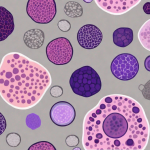Cancer therapy has made remarkable strides with innovative treatments and technology. Traditional methods like surgery, radiation, and chemotherapy are now complemented by targeted and personalized therapies. Immunotherapy, leveraging the immune system, and precision medicine, tailoring treatment to genetic profiles, are significant advances. AI and machine learning improve diagnosis and treatment planning, while nanotechnology promises targeted drug delivery. The future of cancer therapy is bright with potential breakthroughs in gene therapy and nanotechnology, but challenges like patient safety and ethical considerations in research remain. This comprehensive guide explores the evolution, current state, and future of cancer therapy, highlighting its impact on patient care.
Cancer therapy has come a long way in recent years, with advancements in technology and innovative approaches paving the way for more effective treatments. In this comprehensive guide, we will explore the basics of cancer therapy, the role of technology in advancements, innovative approaches to treatment, the future of cancer therapy, and the challenges and ethical considerations associated with these advancements.
Understanding the Basics of Cancer Therapy
Cancer therapy has evolved significantly over time. The traditional approaches, such as surgery, radiation therapy, and chemotherapy, have proven to be effective in treating many types of cancer. However, these treatments often come with side effects that can be challenging for patients to manage.
Fortunately, ongoing research and advancements in cancer therapy have led to the development of more targeted and personalized treatments. These advancements aim to enhance the effectiveness of treatment while minimizing the impact on the patient’s overall well-being.
The Evolution of Cancer Treatments
Over the years, cancer treatments have evolved from general approaches to more targeted therapies. The understanding of cancer at a cellular and molecular level has allowed researchers to develop treatments that specifically target cancer cells, leaving healthy cells unharmed.
One significant advancement is the use of immunotherapy, which harnesses the body’s immune system to fight cancer. By stimulating the immune response, immunotherapy can effectively target cancer cells and improve treatment outcomes.
Current Standard Practices in Cancer Therapy
Today, the standard practices in cancer therapy involve a multidisciplinary approach, where a team of healthcare professionals works together to develop a treatment plan tailored to each patient’s individual needs. This approach ensures that patients receive the most appropriate and effective treatments available.
Chemotherapy, radiation therapy, and surgery remain the cornerstone of cancer treatment. However, advancements in these areas have led to better outcomes and reduced side effects. For example, targeted therapies are designed to specifically attack cancer cells while minimizing damage to healthy cells, thereby reducing the side effects associated with traditional chemotherapy.
The Role of Technology in Cancer Therapy Advancements
Technology has played a pivotal role in the advancements of cancer therapy. From improved imaging techniques to the development of sophisticated treatment delivery systems, technology has revolutionized the way we diagnose and treat cancer.
The Impact of Artificial Intelligence and Machine Learning
Artificial intelligence (AI) and machine learning have emerged as powerful tools in cancer therapy. By analyzing vast amounts of patient data, AI algorithms can identify patterns and make predictions that help healthcare professionals make more informed decisions about treatment options.
Machine learning algorithms can assist in diagnosing cancer earlier, predicting treatment outcomes, and personalizing therapies based on individual patient characteristics. This technology has the potential to transform cancer therapy by improving accuracy, efficiency, and patient outcomes.
The Emergence of Precision Medicine
Precision medicine is an approach that takes into account a patient’s unique genetic makeup, lifestyle, and environmental factors when developing a treatment plan. It aims to provide targeted therapies that are more effective and have fewer side effects.
Advancements in genomic sequencing technologies have made it possible to identify specific genetic alterations in tumors. This information can then be used to tailor treatments to target these specific alterations, increasing the chances of a successful outcome.
Innovative Approaches to Cancer Therapy
In addition to the advancements in traditional cancer treatments, innovative approaches are continuously being developed to further improve patient outcomes.
Immunotherapy and its Advancements
Immunotherapy has revolutionized cancer treatment by harnessing the power of the immune system to attack cancer cells. It works by stimulating the immune system or introducing immune cells or substances into the body to target and destroy cancer cells effectively.
Recent advancements in immunotherapy, such as immune checkpoint inhibitors and CAR-T cell therapy, have shown promising results in treating various types of cancer. These approaches have provided hope for patients with previously limited treatment options.
Advancements in Targeted Therapy
Targeted therapies are designed to specifically target cancer cells based on their unique characteristics. By targeting specific molecules or proteins involved in cancer growth and progression, these therapies can effectively inhibit tumor growth while sparing healthy cells.
Advancements in targeted therapy have led to the development of new drugs and treatment strategies, such as tyrosine kinase inhibitors and monoclonal antibodies. These therapies have significantly improved survival rates and quality of life for patients with specific types of cancer.
The Future of Cancer Therapy Treatments
The future of cancer therapy holds great promise, with ongoing research and discoveries paving the way for potential breakthroughs.
Potential Breakthroughs on the Horizon
Scientists are exploring new treatment modalities, such as gene therapies and immunotherapies, which have the potential to revolutionize cancer treatment. These therapies aim to directly alter the genetic makeup of cancer cells, leading to their destruction or rendering them susceptible to other treatments.
Furthermore, advancements in nanotechnology hold promise for more effective drug delivery systems and personalized treatments. Nanoparticles can be designed to target specific cancer cells, enhance drug efficacy, and reduce side effects.
The Role of Nanotechnology in Future Treatments
Nanotechnology has the potential to transform cancer therapy by improving drug delivery mechanisms, imaging techniques, and diagnostics. By leveraging the unique properties of nanoparticles, researchers can develop more targeted and efficient treatments.
With the ability to precisely deliver drugs to tumor sites, nanotechnology can increase treatment efficacy while minimizing damage to healthy cells. This approach not only improves patient outcomes but also reduces the side effects associated with traditional treatments.
Challenges and Ethical Considerations in Cancer Therapy Advancements
While the advancements in cancer therapy offer great promise, there are inherent challenges and ethical considerations that must be addressed.
Balancing Patient Safety with Innovation
As new therapies emerge, it is crucial to prioritize patient safety and ensure that the benefits outweigh the potential risks. Comprehensive clinical trials and rigorous monitoring are vital in evaluating the safety and efficacy of new treatments before they are widely used.
Healthcare professionals and researchers must navigate the fine line between pushing the boundaries of innovation and ensuring that patients receive safe and effective treatments. This balance can be achieved through ongoing research, collaboration, and transparent communication.
Ethical Dilemmas in Cancer Therapy Research
Cancer therapy research raises ethical dilemmas that must be carefully considered. These include issues related to patient consent, access to experimental treatments, and the equitable distribution of resources.
It is essential to strike a balance between advancing scientific knowledge and respecting the rights and well-being of patients involved in clinical trials and research studies. Ethical frameworks and regulatory guidelines are in place to ensure that these considerations are addressed and that patient welfare is protected.
In conclusion, the advancements in cancer therapy treatments have transformed the landscape of cancer care. Understanding the basics of cancer therapy, the role of technology, innovative approaches, and the future of cancer therapy can empower patients, healthcare professionals, and researchers alike. By continuing to collaborate and address the challenges and ethical considerations associated with these advancements, we can strive to provide more effective, personalized, and compassionate cancer care to those in need.






